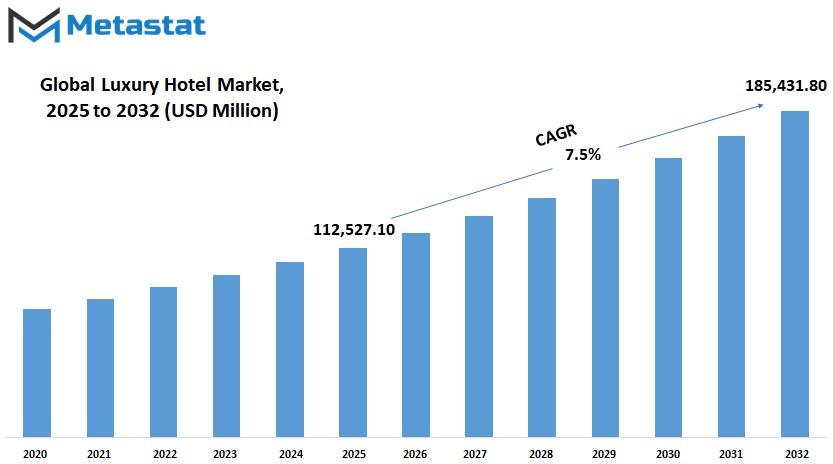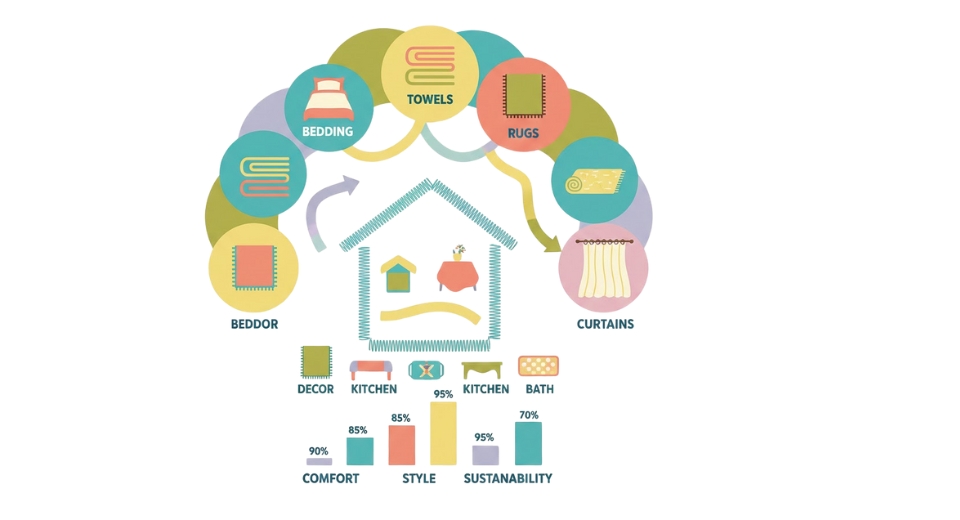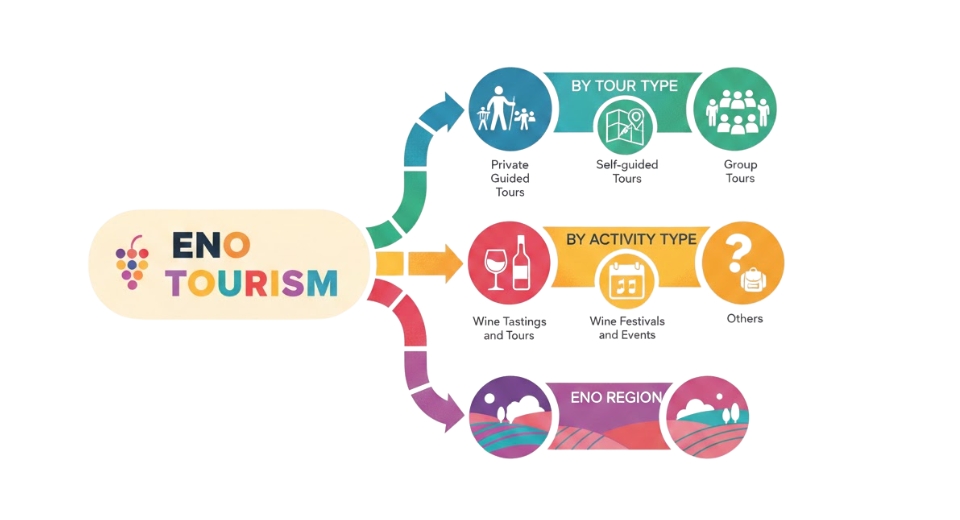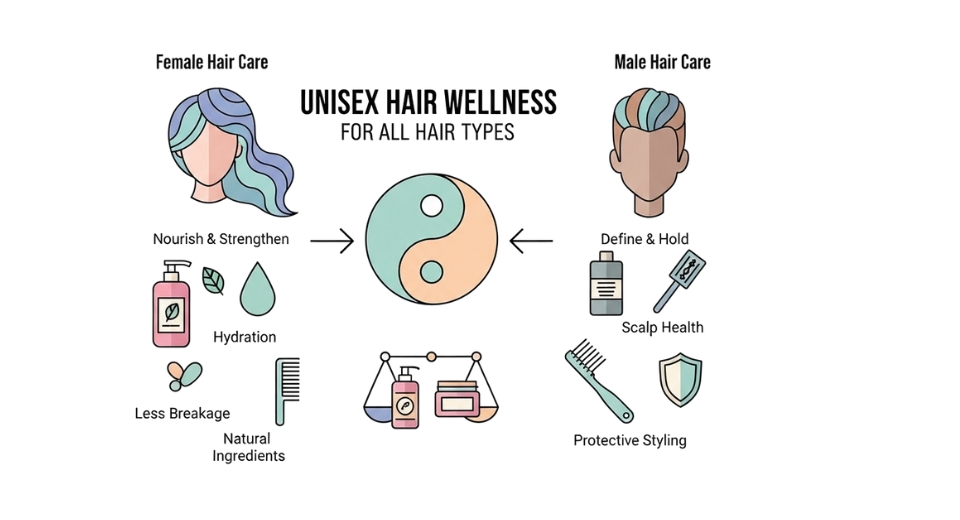MARKET OVERVIEW
The global luxury hotel market is an engaging review of one of the most intricate niches within global hospitality. Delving fully into the finessed tides driving the trend, this new publication takes a rich picture of what it means to be exclusive and refined at a global level. With consumer expectations extending beyond conventional paradigms, the concept of luxury in hospitality repeatedly repositions itself in terms of experiences, rather than mere amenities. That transformation is not just witnessed in the hospitality services themselves but also in the operational philosophy and market strategies pursued by top players on continents.
Over the past decade, the Global Luxury Hotel industry has seen a shift informed less by outward opulence and more by experiential immersion with precision. The erstwhile convention of greatness markers such as marble-floored lobbies, lavish buffets, gold-leafed interiors no longer serve as the only yardstick of excellence. Rather, the focus has shifted to individualization and frictionless service, often enabled through discreetly implemented technology and a deep sensitivity to cultural nuance. This subtle sophistication does not always advertise itself; instead, it makes an impression that lingers long after departure.
This marketplace is defined by its capacity to reflect the world's cultural trends while holding the inherent local nature. In markets where heritage and tradition are deeply ingrained, luxury hotels have adapted to incorporate those aspects into their look, cuisine, and visitor interaction. In other places, there is a more modern, minimalist look plain lines, empty space, and sustainability first. The flexibility shown across geographies is more than a question of fashion; it is a sign of a broader story about the role of luxury in social contexts.
Among the most notable traits found in the publication of Metastat Insight is the manner by which this sector absorbs outside influences without sacrificing identity. In the face of changes in international travel patterns or the adaptation to new lifestyle trends, the Global Luxury Hotel industry shows great flexibility. Whether boutique owners or multinational corporations, stakeholders all share an adaptability of mind in readjusting offerings while keeping to the fundamental promise of enhanced comfort and service subtlety.
The geographical spread of luxury hospitality also lays out new locations that are competing with time-honored ones. That is not necessarily always new development but rather reinvention of what already exists, putting life into old architecture or far-flung natural environments. Through this process, those places redefine the luxury script by prioritizing narrative, cultural immersion, and deliberate exclusivity. In contrast to mass tourism, which targets volume and visibility, luxury hotels tend to pursue privacy, storytelling, and resonance with a sophisticated target market.
In addition, the global luxury hotel market still captures the interests of investors and development companies that appreciate its resilience and depth appeal. Such ventures are more than just financially rewarding; they tend to complement the aspirational essence of luxury vacations. For groups of hotels, staying relevant in this environment requires a union of tradition and foresight knowing when to preserve solid brand conventions and when to innovate with shifting customer demand. The self-control it takes to manage such contradictory forces is reflective of the strong strategic thought that runs through this sector.
The report released by Metastat Insight also shows how innovation isn't always a matter of bringing out the latest device or design fad. It might rather entail returning to the basics of hospitality warmth, welcoming need ahead of time, and being authentic and rethinking them in a manner that resonates in the present. The most effective businesses are ones that are able to remain ahead not by keeping up with trends but by subtly leading them, frequently by remaining genuine to themselves and perfecting what is already there instead of pursuing ever-updated reinvention.
International networks in this sector are coming to be more and more defined by fluid partnerships, joint ventures, and innovative collaborations that merge hospitality with wellness, fashion, gastronomy, and even art. These collaborations create an environment that is as culturally vibrant as it is business-successful. They enable a broader guest experience, one that can move across disciplines without losing a consistent note of luxury and thoughtful service.
As Metastat Insight reveals in its sweeping publication, the Global Luxury Hotel industry is not just a commercial sector but an expression of how desire and experience intersect. It addresses an audience that cares less about surface prestige and more about meaning, memory, and complexity. This audience is not looking to be impressed; it is looking to be understood.
In the future, the market continues to be characterized by its capacity to evolve without losing meaning. It is able to stay relevant not through swift change but through thoughtful distillation. The attributes that thrive in such an environment are those which uphold lucidity in their raison d'être while being receptive to alteration. They avoid becoming caricatures of high-end quality through the grounding of purpose.
Lastly, the extensive analysis presented in the recent Metastat Insight report highlights that the Global Luxury Hotel industry is not a stagnant sector but a considerately staged environment in which greatness develops without announcement. It is an industry that hears more than it proclaims, that ages beautifully instead of reinventing, and that persists by remaining quietly attuned to the needs and wants of whom it caters to.
Global luxury hotel market is estimated to reach $185,431.80 Million by 2032; growing at a CAGR of 7.5% from 2025 to 2032.

GROWTH FACTORS
The global luxury hotel market is expected to witness steady progress as people continue to seek comfort, exclusivity, and high-quality experiences during their travels. As the desire for personalized services and unique experiences grows, luxury hotels are finding new ways to meet and exceed expectations. Travelers are no longer just looking for a place to stay they are searching for an atmosphere that offers relaxation, privacy, and memorable service. This shift in preferences is becoming one of the key reasons behind the market’s gradual expansion.
One of the strongest factors pushing this market forward is the rise in international travel. As more people explore different destinations, the need for luxury accommodations increases. Along with this, there is a noticeable rise in disposable income across many regions. This change means that a larger number of travelers can now afford to stay in premium hotels, which is driving demand. Moreover, technology is playing a major part in shaping the future of luxury stays. Smart room features, easy booking options, and highly responsive customer service are helping hotels attract modern travelers who appreciate convenience and innovation.
Another strong influence on the market is the growing interest in wellness and sustainability. Many guests now look for hotels that not only provide comfort but also align with their lifestyle choices. Whether it is organic food, eco-friendly architecture, or wellness retreats, these factors are beginning to shape how luxury hotels present themselves. This attention to well-being and responsible travel could continue to attract guests and set new standards for service.
However, there are a few issues that might slow down progress. Economic instability in certain parts of the world can make people more cautious about spending. This could lead to a drop in luxury travel. In addition, high operating costs and the need for constant upgrades might affect the profitability of some hotels. These challenges can create pressure, especially for newer or smaller brands trying to compete with established names.
Even so, there is room for fresh ideas to bring new energy into the market. Hotels that adopt creative design, offer tailored guest experiences, or use advanced digital tools will have the chance to stand out. There is also growing interest in lesser-known destinations, which opens up space for luxury hotels to expand outside traditional hotspots. In the coming years, the global luxury hotel market will likely see more tailored services, smart technology, and wellness-focused travel driving its development.
MARKET SEGMENTATION
By Type
The global luxury hotel market is expected to continue growing as travel becomes more accessible and people seek higher levels of comfort and personalized service. In the future, this market will likely be shaped by changing lifestyles, rising expectations, and new demands from travelers who value not only a place to stay but also a unique and meaningful experience. Hotels will need to move beyond traditional offerings and focus more on how they make guests feel from the moment they arrive until they leave. This shift will push hotels to invest in features that meet both personal and professional needs.
By type, the global luxury hotel market includes several segments that will each follow their own path of development. Business hotels will continue to be important, especially as remote work blends with travel, creating a need for spaces that support productivity without sacrificing comfort. These hotels will likely offer better workspaces, stronger digital connections, and flexible services that adjust to a guest's routine. Airport hotels will also see change, especially as international travel grows. These properties will not just offer convenience, but also comfort and quiet, helping travelers relax during short stays or layovers.
Resorts will hold their appeal as destinations that offer relaxation and entertainment in one place. Future resorts will focus more on nature, health, and well-being, offering everything from outdoor activities to spa treatments and personalized nutrition plans. Suite hotels will grow in popularity among families and longer-stay guests who need more space and privacy. These hotels will likely focus on home-like features while still offering top-quality service. Boutique hotels will remain attractive for guests who want something different. They will highlight local design, food, and culture, giving each stay a personal touch. Other types of luxury hotels, such as those on yachts or in remote locations, will also grow as travelers look for one-of-a-kind experiences.
Looking ahead, the global luxury hotel market will need to balance innovation with warmth. Technology will play a larger role in the guest experience, from contactless check-ins to smart room controls. However, the personal touch will remain key. Staff will still be trained to offer thoughtful and attentive service. Sustainability will also matter more, as guests become more aware of their impact on the environment. Hotels that offer luxury without waste will be seen as more thoughtful and forward-looking. In this way, the global luxury hotel market will not just grow but also become more human-centered and responsive to the future.
By Category
The global luxury hotel market will continue to shape the future of travel and hospitality in significant ways. As people grow more interested in unique and comfortable experiences, luxury hotels will keep adapting to meet their needs. From personalized services to attention to the smallest details, these hotels focus on creating lasting impressions. Whether it is a business trip or a holiday, travelers are looking for something more than just a place to stay. They want relaxation, convenience, and a sense of being valued. This expectation is pushing the market to improve every part of its service.
Looking ahead, one clear trend is the use of technology to improve guest experiences. Many luxury hotels are already using smart systems to control lighting, temperature, and entertainment. In the future, these services will become even more common and more personalized. Guests will check in through mobile apps, have room service delivered by automated systems, and enjoy stays that adjust to their personal habits. Still, this focus on technology will not take away the human touch that many guests still appreciate. Staff training and customer service will remain just as important, ensuring that luxury stays feel warm and personal.
By category, the market is shaped by both chain hotels and independent hotels. Chain hotels will likely keep growing, offering consistency and comfort that travelers trust. With recognized names and a wide reach, they will attract guests who prefer reliability and familiar settings. On the other hand, independent hotels are finding new ways to stand out. Many of them focus on local culture, design, and personal attention. They may not have the wide brand recognition, but they offer something different something that feels more connected to the place where they are located. As travelers search for more meaningful and personalized stays, independent hotels will have strong appeal.
In the future, both types of hotels will play an important role in the global luxury hotel market. Travelers will choose what fits their needs, and the market will continue to respond to that demand. New designs, smart features, and thoughtful service will shape how luxury is defined. The idea of luxury is no longer just about high-end products it’s about how the experience makes someone feel. This shift will keep the market growing and changing, offering even more ways for travelers to enjoy comfort, style, and care.
By Booking Mode
The global luxury hotel market will continue to grow and reshape itself in the future, driven by changing travel habits, technology, and rising customer expectations. As the world becomes more connected, people seek unique and comfortable experiences during their travels. Luxury hotels offer much more than a place to sleep they provide comfort, personalized service, and a strong sense of care that makes every stay memorable. Over time, travelers have come to expect more than just a soft bed and clean sheets. They look for environments that feel exclusive yet welcoming, where their needs are not just met but anticipated.
Technology will play a big part in shaping how people choose and book luxury stays. The way people book their hotel stays has already seen big changes, and this trend will continue. Direct booking will still be important because many travelers feel more secure dealing directly with the hotel. It allows them to ask questions, make changes, and often get better offers or upgrades. However, travel agents will not disappear either. Even in the digital age, many people still trust expert advice and prefer someone else to handle the planning, especially for special trips.
Online Travel Agencies will continue to be a major part of the booking process. These platforms make it easy to compare hotels, read reviews, and book in a few simple steps. As more people use smartphones and tablets, these online services will become even more important. Some travelers enjoy the convenience and control these platforms provide, while others appreciate the amount of choice and transparency they offer.
Looking ahead, the global luxury hotel market will likely focus more on sustainability and local culture. Hotels will need to meet higher expectations not just in comfort, but in their impact on the world. Travelers will care more about how hotels support their communities and reduce their environmental footprint. The definition of luxury is slowly changing it is no longer just about gold-plated finishes or fancy restaurants. It is also about peace of mind, thoughtful experiences, and meaningful connections.
The future of the global luxury hotel market is not only about competition but also about adaptation. Success will come to those who listen to what travelers really want and respond with care, flexibility, and attention to detail. Those who do will build lasting loyalty and stand out in a busy and fast-changing world.
|
Forecast Period |
2025-2032 |
|
Market Size in 2025 |
$112,527.10 million |
|
Market Size by 2032 |
$185,431.80 Million |
|
Growth Rate from 2025 to 2032 |
7.5% |
|
Base Year |
2024 |
|
Regions Covered |
North America, Europe, Asia-Pacific Green, South America, Middle East & Africa |
REGIONAL ANALYSIS
The global luxury hotel market is shaped by various regional influences, each contributing its own character and pace to how this industry grows and shifts. This market will continue to draw attention as travelers seek not just a place to stay, but an experience that meets high standards of comfort, service, and design. Looking ahead, the market will not only meet existing demand but will also adapt to changing travel habits, new technologies, and shifting economic conditions. Across all regions, luxury hotels are beginning to reflect local culture while offering guests a seamless blend of personalized service and modern amenities.
In North America, the United States will likely remain a major force, supported by its well-established tourism infrastructure and ongoing innovation in hospitality services. Canada and Mexico will also play important roles, with Mexico, in particular, focusing on growing its high-end beach resort sector. Europe, with countries like the UK, Germany, France, and Italy, continues to attract both leisure and business travelers who expect premium services. These locations offer a mix of tradition and elegance that appeals to many guests seeking memorable stays. Hotels here often balance classic appeal with newer features to maintain relevance in a competitive setting.
In the Asia-Pacific region, nations such as China, India, Japan, and South Korea are becoming more influential. As middle-class populations grow and disposable income increases, so does interest in luxury travel. These markets will shape the future of the global luxury hotel market by supporting both domestic tourism and international arrivals. New developments will likely focus on eco-conscious designs, tech-enabled guest experiences, and wellness-oriented services. This region is quickly building a reputation for offering luxurious options that are both diverse and innovative.
South America will also expand its role. Countries like Brazil and Argentina are starting to gain attention by developing more luxury properties, particularly in scenic locations known for their natural beauty. In the Middle East and Africa, key areas such as the GCC Countries, Egypt, and South Africa are becoming popular for travelers seeking both opulence and cultural depth. These areas often combine stunning architecture with premium offerings that appeal to a wide range of travelers.
Looking forward, the global luxury hotel market will continue to shift based on regional strengths, guest expectations, and broader economic changes. Personalized service, cultural connection, and thoughtful design will remain the core of what drives this market forward.

COMPETITIVE PLAYERS
The global luxury hotel market will continue to evolve with changing customer preferences, technological advancements, and the growing importance of unique travel experiences. Luxury is no longer just about elegant rooms and fine dining; it is becoming a more personal and customized concept. Guests now look for hotels that not only offer comfort and style but also create memorable moments that reflect their lifestyle. As demand rises for more personalized and sustainable hospitality, competitive players in this industry are adapting in different ways to maintain their position and appeal to a broader range of travelers.
Many well-known hotel groups are setting the tone for what lies ahead. Companies such as Accor and Hyatt Corporation are already focusing on enhancing the guest experience through technology while keeping the human touch alive. Their strategy includes mobile check-ins, smart room features, and seamless service, all meant to create a sense of ease and familiarity. On the other hand, brands like Aman Resorts and the Auberge Resorts Collection lean toward exclusivity and privacy, attracting travelers who value peace, nature, and thoughtful design. These hotels often choose locations that provide a break from busy city life, allowing guests to unwind fully.
Meanwhile, groups like Marriott International and Intercontinental Hotels Group are expanding their global reach, keeping an eye on both emerging destinations and cities where luxury tourism is expected to grow. They will likely keep investing in properties that reflect local culture while maintaining the brand’s signature standards. The Four Seasons Hotel Limited and Rosewood Hotel Group continue to focus on high service standards, offering a sense of familiarity that appeals to loyal guests who expect consistency. At the same time, smaller brands such as Bill & Coo Hotels Mykonos and Canaves Oia Suites & Spa use their location and boutique style to attract travelers looking for intimate and scenic experiences.
Sustainability will also play a larger role in shaping decisions across the global luxury hotel market. From reducing environmental impact to supporting local communities, competitive players are expected to integrate meaningful practices into their daily operations. This shift will not only meet the growing demand for ethical travel but will also influence long-term brand loyalty. As the future unfolds, competition will not only revolve around luxury or pricing but also how well hotels understand and respond to what their guests value most. The market will favor those who listen, adapt, and evolve with purpose.
Luxury Hotel Market Key Segments:
By Type
- Business Hotels
- Airport Hotels
- Resorts
- Suite Hotels
- Boutique Hotels
- Other
By Category
- Chain
- Independent
By Booking Mode
- Direct Booking
- Travel Agents
- Online Travel Agencies
Key Global Luxury Hotel Industry Players
- Accor
- Four Seasons Hotel Limited
- Canaves Oia Suites & Spa
- Metaxa Hospitality Group
- Gran Hotel La Florida
- Belmond Management Limited
- Auberge Resorts Collection
- Bill & Coo Hotels Mykonos
- COMO Hotels and Resorts
- Mandain Oriental Hotel Group Limited
- Marriott International, Inc.
- Rosewood Hotel Group
- Radisson Hotel Group
- Aman Resorts
- Hyatt Corporation
- The Luxe Life Hotel
- Intercontinental Hotels Group
WHAT REPORT PROVIDES
- Full in-depth analysis of the parent Industry
- Important changes in market and its dynamics
- Segmentation details of the market
- Former, on-going, and projected market analysis in terms of volume and value
- Assessment of niche industry developments
- Market share analysis
- Key strategies of major players
- Emerging segments and regional growth potential








 US: +1 3023308252
US: +1 3023308252






